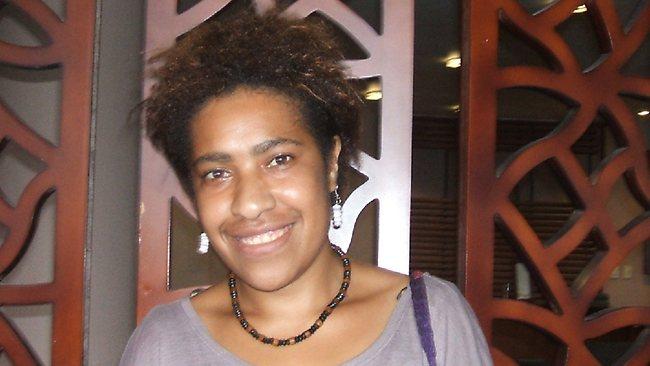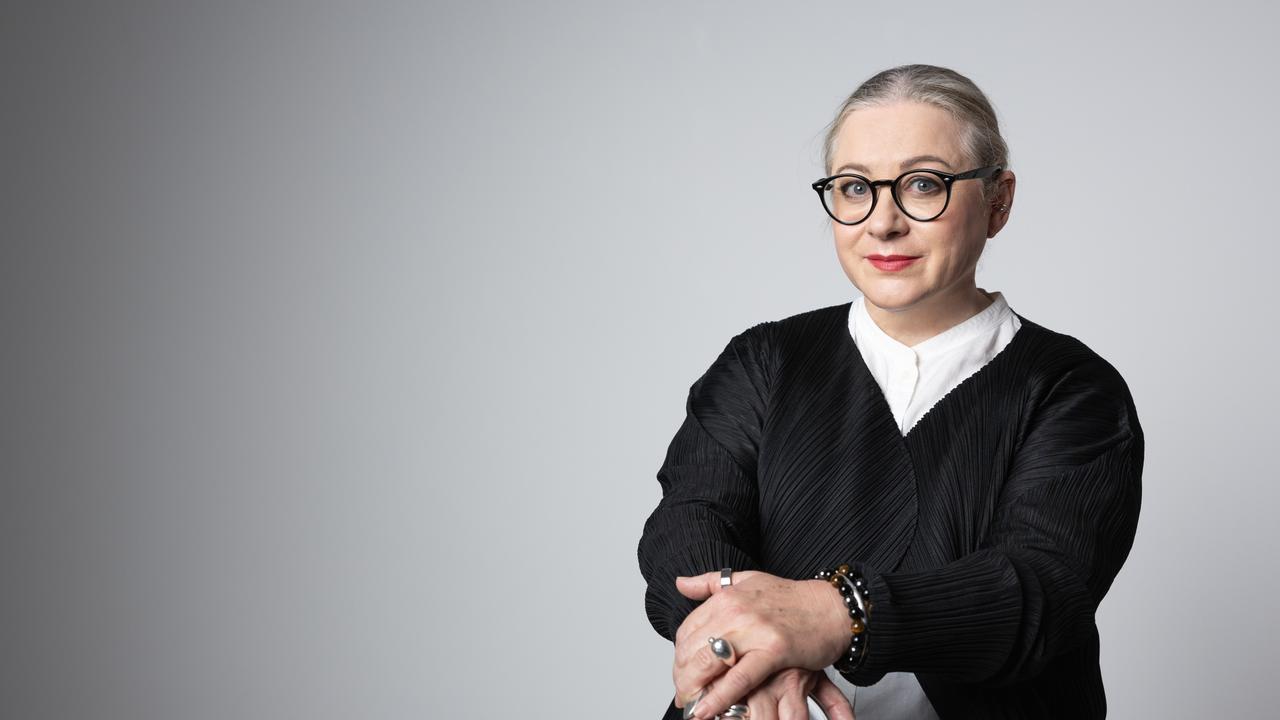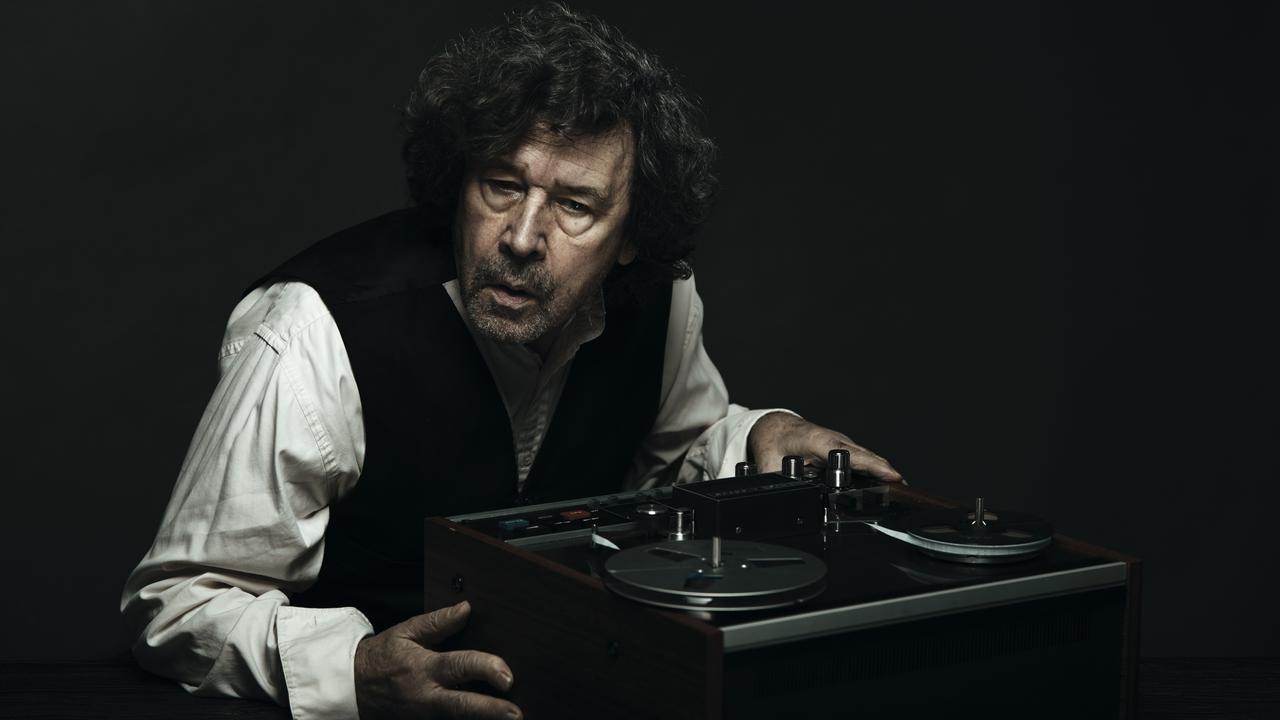Good grace on set as PNG drama series gets AusAID backing
THE nascent television industry in PNG is receiving support from an unexpected source: Australian aid funds.

IT'S early afternoon in one of Port Moresby's few five-star hotels, and Sam Paulus's voice rumbles through the bar like a heavy metal riff in a Carmelite convent. "Is my food ready?" he roars, startling well-dressed diners and uniformed waiters. "I need to have some food! Where's the foo-ood?"
Paulus has not forgotten his manners, which are impeccable. Nor is this seasoned actor in this hotel, all muted lighting and restrained conversation, for lunch. Rather, he is hamming it up for Review's benefit as he talks up a groundbreaking Papua New Guinea drama, Grace, that has an unusual Australian connection. One of PNG's first multi-part television dramas, this innovative project is largely funded by Australia's aid agency, AusAID.
In Grace, Paulus is to portray a hard-drinking, lecherous public servant who, he says, is emblematic of a type of PNG "working-class" man who puts his own interests and pleasures ahead of his family. (In PNG, "working class" doesn't mean what it would here: it denotes the waged class, a privileged minority, as most Papua New Guineans do not have jobs in the formal economy.)
The actor explains: "I will play the public servant that gets drunk, most of the time his pay goes to his beer, to play pokies. His kids are suffering."
This character terrorises his family, just because he can, and often demands dinner as he staggers through the front door. (Hence Paulus's bellowing in the hotel.) Because of his profligate spending, he is usually broke. "This is the disorderly type of person I am," says the actor, his voice heavy with disapproval.
Set in Simbu province and Port Moresby, Grace will comprise 10 half-hour episodes. It is one of the first long-form TV dramas to be made in PNG, where the indigenous television and film sector is still in its infancy. The drama has a budget of about 500,000 kina ($193,000), meagre by Australian standards but substantial in PNG's under-resourced screen trade. The bulk of this funding will come from the Australian aid agency.
Grace is thought to be the first PNG TV drama series to be supported by an aid program. Among the issues it will address are rape, forced marriage, the education of girls and gender justice. Such issues are key concerns of AusAID in PNG, where women have a drastically low quality of life. This year, the developing nation ranked a lowly 134th out of 148 countries on the UN Development Program's gender inequality index.
The drama pivots around its eponymous heroine, an unworldly but clever Year 11 islander girl who wants to become a lawyer.
In the first episode, Grace learns her school is closing down, so she moves to the capital, Port Moresby, to study and live with an aunt and uncle. She is keen to experience the good life in the big city and flirts with the idea of having a sugar daddy.
Her uncle - the character played by Paulus - becomes jealous and attempts to rape her. He is caught and the traumatised girl heads back to her home, too upset to sit for her final school exams.
Unbeknown to the teenager, her mother and an uncle have paid a "bride price" to marry her off in an arranged marriage - still a common practice in rural PNG. Grace is reeling from this second betrayal when a teacher intervenes and saves the girl from spending most of her life with a man she can't stand.
The troubled young woman is to be played by Tina Wesley, a university student who will make her acting debut in the series and who seems almost too shy and reserved to be a performer. "It's a new thing for me, and challenging," Wesley admits with an almost embarrassed smile.
Asked whether the traumas Grace endures mirror those encountered by her peers, she replies: "Definitely. Many young girls in Papua New Guinea are facing such problems."
The half-dozen male cast and crew members who are listening in nod their heads gravely in agreement.
Wesley is from PNG's Western Islands and says she relates to the fact Grace is "a strongly symbolic character and an islander girl, like me". She agrees that in rural PNG, girls often have no choice but to marry a spouse chosen by their parents. Wesley was spared this; she is a third-year university arts student who for years has nursed an ambition to act.
I spoke to Wesley and other cast and crew from Grace earlier this year while travelling to PNG as part of a delegation of Australian journalists sponsored by the Department of Foreign Affairs and Trade.
So how did AusAID - which most people associate with health and education programs for the impoverished - become involved with PNG's nascent television industry? McPolly Koima, Grace's executive producer and director, explains he had already worked on a radio drama series with the aid body, with themes of good governance, disability and HIV-AIDs prevention. "They liked that program so much, they were keen that we should turn Grace's story into television drama," he says.
Koima believes TV drama can be a potent educative tool in PNG's largely oral culture. "Our culture is oral culture. We talk. The most powerful thing that you can use to educate Papua New Guineans is television and radio. You will never educate Papua New Guineans with print media. It is a waste."
Grace is to screen on the state-owned TV station Kundu 2 next year.
Even so, there is a palpable sense of frustration among the Grace cast and crew who speak to Review. PNG is largely a nation of subsistence farmers and, as such, opportunities for making films and TV drama are scarce. Only a handful of feature films have been made there - often with a heavy foreign involvement - and in this country of seven million people there is just one cinema multiplex, in Port Moresby. Like multiplexes everywhere, it shows mostly American films.
Albert Toro, an award-winning drama writer who trained at the ABC, has written the script for Grace, which he says will be leavened with humour. "It's a very Papua New Guinea kind of thing," he says, eyes gleaming with mischief. "Very serious, serious, then a little laugh. It's kind of a cocktail party, a little bit of this, a little bit of that."
Toro is a film industry pioneer who worked on the 1982 feature film Tukana, widely regarded as the first largely PNG film. He has written dozens of radio plays for the country's National Broadcasting Corporation, including the prize-winning serial Sugar Cane Days, which focused on a young Bougainvillean's forced indenture in 19th-century Queensland canefields.
Still, he reckons local artists were better funded before independence in 1975 than they are now. "Sometimes I used to think, 'There must be a conspiracy to suppress people in the villages, so they're not getting the right information,' " he says indignantly.
A study last year of local people's access to information suggests PNG is yet to be integrated into the global village connected by mass media, social media and the online world. The survey found while exposure to TV was rising, "its growth is heavily limited to urban centres, due to financial barriers, poor infrastructure and weak signals in many rural areas". While more than four in five PNG households owned a radio or mobile phone, internet access was largely confined to the young urban elite. (The study's authors expected this to change soon.)
Indeed, there were still "media dark" areas in PNG that offered only sporadic access to TV, radio, newspapers or the internet. Some locals gleaned their only news and media information from radio while riding on public buses.
Interestingly, other aid projects have also leveraged radio and TV to advance social reform. In another AusAID-backed project aimed at challenging gender stereotypes, trainee PNG filmmakers are profiling local female leaders. In 2011, the Use Your Voice campaign, a partnership between AusAID and NBC radio, tackled the country's endemic levels of gender violence: according to the World Bank, two out of three women in PNG have suffered domestic violence and more than half have been raped.
In three months, the NBC produced more than 30 hours of radio programming, including talkback radio slots, on the issue. Charlie Tonga, a well-known NBC host, admitted he had been violent towards women: "I remember one time bashing up, black eyes and all that," he told his listeners.
Australian rugby league stars Mal Meninga and Nathan Hindmarsh also took part in the campaign, appearing on PNG TV with the message "strong men don't bash women".
But will Australia's changing aid priorities in PNG - with more money to be dedicated to large infrastructure projects, in line with the O'Neill government's wishes - mean such collaboration between the arts/broadcasting and aid sectors is unlikely to continue? It's an as-yet unanswered question.
AusAID is awaiting detailed instructions from the Abbott government about its priorities, but Canberra has signalled it wants to improve the aid program's efficiency and direct funding to high-performing programs.
The Grace team sees the TV drama as having two vital roles: as an important educative project in their information-poor society and as a catalyst for the development of an indigenous film and TV industry.
"It encourages actors and actresses like us to move one step further," Paulus says. "Not all the time, we're gonna be in stage production and radio production."
The AusAID-backed drama, reiterates the actor, "is a stepping stone to what we are longing for".



